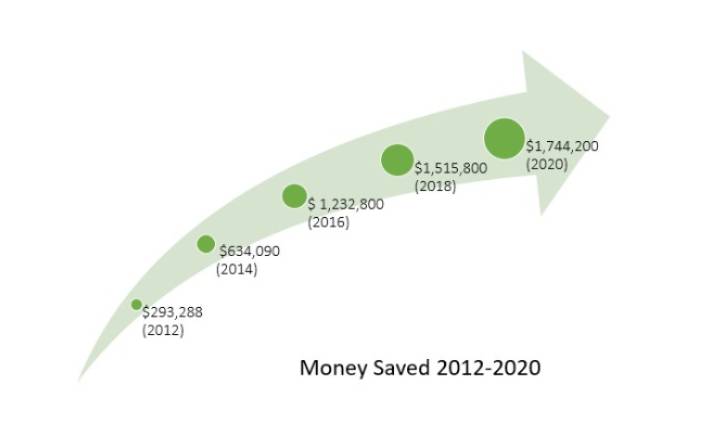Open Educational Resources
The legacy of students investing in students.
Open Education Week 2022
It's Open Education Week March 7-11, 2022, and we're celebrating by highlighting TCC's amazing OER (Open Educational Resources) work over the last 10 years. Each year, TCC saves student over $1 million in textbook savings. Visit our OER Student Guide each day of this week to learn more about TCC's OER work and the people like you who have built this amazing program!

Free and Low-Cost Teaching Materials
At Tacoma Community College, we're saving students money on textbooks by adopting OER.
Open Educational Resources (OER) are teaching materials available at little or no cost that can be used for teaching, learning or research. Our student surveys have shown that students find them just as effective as traditional textbooks, if not more so.
TCC labels course sections in the class schedule that use free and low-cost materials:
- Free. This means no textbook to purchase, unless you choose to print out some of the freely available materials.
- Low-cost. This means you'll need to buy a textbook for the class, but it will be under $50.
Learn More!
Our OER Story
TCC's success with OER is the legacy of students investing in students. As textbook costs skyrocketed over the years, TCC students decided to take action. In 2011-2012, the Associated Students of TCC (ASTCC) voted to fund OER development, starting with the most-enrolled classes. TCC matched those funds. And we've been developing and implementing OER ever since.
How has TCC saved students so much money in such a short amount of time? It's because the savings are cumulative. Once OER materials are developed for a class, they can be used (and changed and adapted as needed) quarter after quarter. So developing OER materials for just one heavily enrolled class can have a huge impact over a few short quarters.
OER isn't just about saving money. It's about providing the best educational experience possible for students. OER is opt-in, which means that if instructors feel that a traditional textbook would best serve their students, that's what we'll use. As OER materials are adopted, we've surveyed both students and instructors. And both students and instructors have told us that OER materials provide a learning experience that's as good or better as a traditional textbook experience.
To learn more about TCC's OER student advocacy and journey, read: "From Spark to flame: Lighting the way for sustainable student OER advocacy framework at a community college," written by TCC's own Jennifer Snoek-Brown, Dale Coleman, and Candice Watkins.